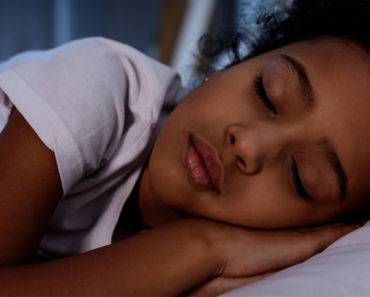Key Pointers
- Tics are uncontrolled body movements or vocalizations due to impulses beyond a person’s control.
- Tics in children are of several types and may be associated with other conditions such as ADHD.
- Stress, excitement, and strong emotions may trigger tics in children who have it.
- The treatment aims at reducing tics and managing the behaviors and triggers that lead to them.
Tics in children usually begin from 3-9 years of age and become more severe from 9-11 years of age. Childhood tics are more common in boys than in girls (1). Tics are quick and difficult-to-control body jolts or sounds caused by fast, repetitive muscle movements or vocalizations. Most people may regard it as an unavoidable submission to an almost irresistible impulse, even though it is occasionally defined as involuntary (2) (3). At least one tic affects about a quarter of all children at some point during childhood (4).
Learn about the different types of tics, their causes, symptoms, and treatment options for children.
Types Of Tics In Children
There are generally two types of tics (3) (5).
- Motor tics include body movements such as blinking, wrinkling the nose, shrugging the shoulders, head-banging, or jerking an arm.
- Vocal or phonic tics include making sounds, such as humming, clearing the throat, coughing, yelling out, or repeating a sound or a phrase.
Depending on the involvement of bodily movements or sounds, tics in children can also be either simple or complex (1) (5).
- Simple motor tics are unusual body movements that include a few parts of the body (one muscle group), such as squinting the eyes (blinking), teeth clicking, or jerking the arm(s). Simple vocal tics are meaningless sounds or noises involving a single sound or noise, such as coughing, sniffing, or clearing the throat.
- Complex motor tics are abnormal bodily motions involving several body parts. It could also follow a pattern, such as bobbing the head while jerking an arm and then jumping up. Complex vocal tics involve meaningful words that may interrupt your child’s speech, such as repeated sentences, words, or phrases. The child may also show changes in breathing patterns. Your child’s voice may vary pitch or volume as a result of these vocal tics.
Classification Of Tics In Children
According to the American Psychiatric Association’s Diagnostic and Statistical Manual of Mental Disorders, Fifth Edition (DSM-5), there are three types of tic disorders in children (1) (6) (7).
- Tourette’s disorder (also called Tourette syndrome): If your child has symptoms of both vocal tics (at least one) and multiple motor tics that lasted for at least a year, it can be defined as Tourette’s syndrome.
- Persistent (also called chronic) motor or vocal tic disorder: If your child has symptoms of either vocal or motor tics that lasted for at least a year, it could be persistent or chronic tic disorders. In such cases, tics do not stop for longer than three months at a time.
- Provisional tic disorder (also known as transient tic disorder):If your child shows symptoms of verbal or motor tics, or both, that have lasted less than a year, it could be provisional tic disorder. It happens only once, or the symptoms may appear and disappear. Provisional tic conditions frequently resolve on their own.
Causes Of Tics In Children
The exact cause or mechanism of tics in children is unknown; however, various studies suggest different theories (5).
- Some studies suggest tics as an inherited genetic condition, i.e., it has been passed through generations.
- It may also be related to an abnormal metabolism(breakdown) of the chemical dopamine in the brain.
- The neurotransmitter disturbances within the basal ganglia have been observed to be related to tics (8).
Certain factors may increase the risk of developing tics in children.
- Tourette’s syndrome is more common in boys than girls.
- Certain medications, such as those administered for treating attention deficit hyperactivity disorder (ADHD) or attention deficit disorder(ADD).
- Various external and internal factors, such as food allergies, exposure to chemicals, and sensory issues, may also trigger tics in children (9).
Some behaviors or emotions may exacerbate tics in children (1) (3).
- Stress or strong emotions
- Anxiety
- Excitement
- Fatigue
- Happiness
- Talking about tics or drawing attention to your child’s tic
Symptoms Of Tics In Children
The symptoms of tics in children can be vocal or motor and may differ for different tic disorders (10).
Common symptoms of vocal tics include:
- Coughing
- Making animal sounds such as hissing or barking
- Throat clearing
- Grunting
- Sniffing
- Repeating words and phrases
- Yelling
Common symptoms of motor tics include:
- Nose wrinkling
- Facial grimacing
- Head twitching
- Lip biting
- Shoulder shrugging
- Blinking
- Mimicking movements by others
- Kicking
- Skipping
- Jumping
- Smelling objects
Conditions That Commonly Occur With Tics
Many children with tics also have one or more mental health conditions, including (4) (5):
A combination of all three mental health conditions could also affect your child with tics. While some children experience minor symptoms of these co-existing conditions, others may experience more severe symptoms than the tics themselves. Therefore, assessing and managing these conditions is also important while treating tic disorders in children.
When To See A Doctor
Tics do not usually cause any brain damage and may even disappear as soon as they appear. However, you should consult your child’s doctor if the tics are (3):
- Regular and more frequent and severe
- Causing your child to experience emotional or social problems, such as humiliation, bullying, or social isolation
- Causing pain or discomfort
- Interfering with your child’s day-to-day activities, or schoolwork
- Triggered by or associated with certain emotions, such as anger, depression, or self-harm
Diagnosis Of Tics In Children
Your child’s healthcare provider can diagnose tics by asking for the signs and the situations when parents observe the tics and their duration. In some cases, the child may have a tic at the clinic, and the doctor may observe it. Neurological exams and tests, such as an electroencephalogram (EEG), may be conducted to rule out brain disorders or diseases. Unless the appearance and clinical findings indicate otherwise, no further studies are required in most children with tics (1) (8).
Treatment For Tics In Children
Treatment of tics in children generally includes reducing or restricting the tics and optimizing the quality of life. Many times, tics are mild and disappear without any intervention as the child grows older. If your child has severe tics affecting their daily activities, the following behavioral therapies may be conducted (1) (3).
1. Comprehensive behavioral intervention for tics (CBiT)
It includes learning a set of behavioral skills to help children with tics. It is a weekly treatment with a therapist that consists of eight sessions stretched out over eight to ten weeks and includes three primary components.
- Increase the child’s awareness of tics and the desire to perform tics.
- Help the child learn a competing behavior when they feel the impulse to perform a tic. This is also known as habit reversal therapy.
- Make modifications to their everyday routine to reduce tics.
2. Exposure with response prevention (ERP)
This technique helps the child adapt to the unpleasant sensations and triggers that often lead to a tic. It makes the child resistant to the sensations or impulses that cause a tic, leading to tic prevention eventually.
Your child’s doctor or neurologist may also prescribe medications if the tics’ symptoms are uncontrolled (8). Neuroleptic medications are the most commonly prescribed medications 11.
Ways To Help A Child With Tics
A greater understanding, acceptance, and compassion are the important aspects while caring for a child with tics. The following tips may lessen the severity of tics and prevent them (3) (10).
- Try to stop your child from concentrating on tics.
- Distract your child with other activities.
- Encourage your child to get enough sleep.
- Try to avoid and reduce stressors, such as tiredness, that exacerbate your child’s tic.
- Do not criticize the child when they have a tic.
- Assure your child that they have no reason to be embarrassed.
- Let other people you interact with regularly know about your child’s tics so they are aware of them and can avoid reacting when they occur.
Tics may come across as minor trouble for the child, but in some cases, they can be severe enough to interfere with daily activities. Parents play a significant role in the management and prevention of tics. You may maintain a diary to note the duration of the tics and observe any potential triggers. Behavioral therapy with parents’ support can help most children grow out of tics, while some may learn to manage it efficiently enough to do daily activities without any interference.
References:


































